Home>diy>Building & Construction>Why Does Road Construction Take So Long
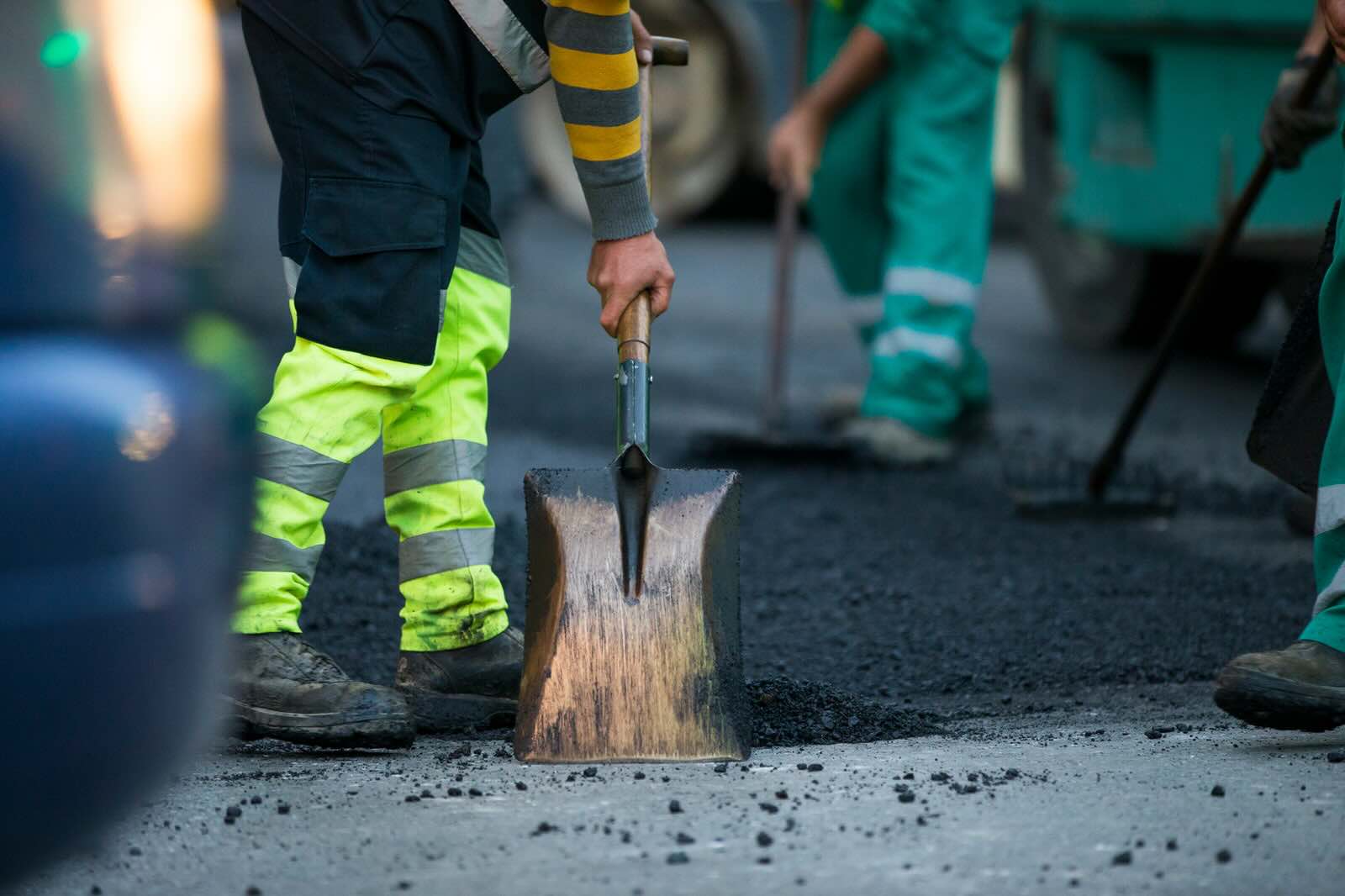

Building & Construction
Why Does Road Construction Take So Long
Modified: January 24, 2024
Discover the reasons behind the long duration of road construction projects. Uncover the complexities and challenges involved in building-construction that contribute to the extended timelines.
(Many of the links in this article redirect to a specific reviewed product. Your purchase of these products through affiliate links helps to generate commission for Storables.com, at no extra cost. Learn more)
Introduction
When it comes to road construction projects, one question that often arises is: why does it take so long? It seems like roads are constantly under construction, causing traffic delays and frustration for commuters. However, the reality is that road construction is a complex process that involves various factors, each contributing to the length of time it takes to complete a project.
In this article, we will explore the reasons behind the delays in road construction projects. From lack of funding and resources to unexpected challenges and regulatory considerations, we will delve into the factors that can significantly impact project timelines. Additionally, we will discuss potential solutions and strategies that can help expedite road construction projects, minimizing disruptions and inconvenience for the public.
So, buckle up and let’s dive into the world of road construction and find out why it can sometimes feel like an everlasting journey!
Key Takeaways:
- Road construction delays are caused by factors like funding, regulations, weather, and unexpected challenges. Proactive strategies, collaboration, and innovative techniques can expedite projects and minimize disruptions.
- Effective project management, communication, and embracing technology can expedite road construction. Engaging the public and proactive risk management are crucial for timely completion and minimizing delays.
Read more: Why Road Construction Takes So Long
Factors That Contribute to Delayed Road Construction Projects
There are several key factors that can significantly contribute to the delays experienced in road construction projects. Understanding these factors is crucial for both project managers and the general public in order to have realistic expectations and minimize frustration. Let’s take a closer look at some of these factors:
- Lack of Funding and Resources: One of the primary reasons for delays in road construction projects is the lack of sufficient funding and resources. Government budgets may be limited, and competing priorities can result in projects being postponed or scaled back. Additionally, acquiring the necessary materials, equipment, and skilled labor can prove to be a challenge, further extending project timelines.
- Environmental and Regulatory Considerations: Road construction projects typically require adherence to various environmental and regulatory standards. This includes obtaining permits, conducting environmental impact assessments, and ensuring compliance with regulations regarding land use, wildlife protection, and pollution control. These processes can be time-consuming and may involve public consultations and mitigation measures, resulting in project delays.
- Coordination with Utility Companies: Before roads can be constructed, it is often necessary to coordinate with utility companies to relocate or adjust underground infrastructure such as gas lines, water pipes, and electrical cables. Coordinating with multiple utility providers, each with their own schedules and priorities, can be a logistical challenge, leading to delays in the construction timeline.
- Weather and Seasonal Limitations: Construction work is greatly affected by weather conditions. Extreme temperatures, heavy rainfall, and winter conditions can all impact the ability to carry out road construction activities. In some cases, certain construction tasks may need to be postponed until weather conditions improve, leading to project delays.
- Unexpected Discoveries and Challenges: During the construction process, unexpected discoveries can arise, such as unidentified underground structures or archaeological artifacts. These discoveries require careful evaluation and potentially involve specialized teams, further prolonging the construction timeline. In addition, unforeseen engineering or geological challenges may emerge, requiring adjustments or additional studies before construction can proceed.
Lack of Funding and Resources
One of the major factors that contribute to delays in road construction projects is the lack of sufficient funding and resources. Road construction projects require significant amounts of money and resources to be completed successfully. However, government budgets are often limited, and allocating funds to road construction can be challenging due to competing priorities.
When road construction projects are underfunded, it can result in delays and compromised quality. Insufficient funding can limit the scope of a project, forcing it to be scaled back or extended over a longer period of time. This can lead to frustration among the public, as they experience prolonged disruptions and inconveniences caused by ongoing roadworks.
In addition to funding constraints, inadequate resources can also contribute to delays in road construction. Resources include not only financial support but also the necessary materials, equipment, and skilled labor required to complete the project. If there is a shortage of these resources, it can hamper the progress of construction activities and extend project timelines.
Obtaining the required materials for road construction, such as concrete, asphalt, and steel, can sometimes be a challenge. Limited availability or delays in the supply chain can impede the construction process. Similarly, the availability of specialized machinery and equipment needed for specific tasks, such as earthmoving or paving, can be limited, further causing delays.
Furthermore, the availability of skilled labor is also a crucial aspect of road construction projects. Construction crews need to have the necessary expertise and experience to handle various tasks, including surveying, excavation, paving, and drainage. However, there is often a shortage of skilled workers in the construction industry, resulting in delays as projects struggle to find qualified personnel.
To address the issue of lack of funding and resources, governments and project stakeholders can explore various strategies. This includes securing additional funding through grants, partnerships, or public-private collaborations. Efficient resource allocation and project planning can also help optimize the use of available resources.
Furthermore, investing in training programs and initiatives to enhance the skills of construction workers can address the shortage of skilled labor. By prioritizing funding and allocating resources effectively, road construction projects can be better equipped to meet timelines and deliver high-quality infrastructure.
Environmental and Regulatory Considerations
Road construction projects are subject to various environmental and regulatory considerations, which can significantly impact project timelines and cause delays. These considerations are in place to ensure that construction activities are carried out in a manner that minimizes negative impacts on the environment and complies with applicable laws and regulations.
One key aspect of environmental considerations is the need for permits and approvals. Before construction can begin, project developers must obtain permits from relevant regulatory authorities. This process involves submitting detailed plans and environmental impact assessments, which assess the potential impacts of the project on surrounding ecosystems, water bodies, and air quality. The permit approval process can be time-consuming, with multiple rounds of review and revision required before final approval is granted.
Public consultations are often a mandatory part of the permit approval process. This involves engaging with the community and gathering feedback on the proposed project. Public consultations can add time to the overall construction timeline, as it takes time to schedule and conduct meetings, address concerns and incorporate feedback into the project design.
Compliance with environmental standards and regulations throughout the construction process is also critical. This includes measures to prevent erosion and sediment runoff, protect natural habitats and species, and minimize noise and air pollution. Adhering to these requirements may involve additional mitigation measures, such as installing erosion control measures, implementing noise barriers, or using dust suppression techniques. Incorporating these measures into the construction plan and ensuring compliance can cause delays if not properly managed.
Regulatory considerations beyond the environmental aspects also contribute to project delays. There may be zoning requirements, land use restrictions, and easement rights that need to be negotiated and secured before construction can proceed. Additionally, coordinating with local authorities and utility companies to obtain permissions and address infrastructure concerns can be time-consuming.
To mitigate the impact of environmental and regulatory considerations on project timelines, early engagement and collaboration with regulatory authorities and stakeholders are essential. This can help identify potential challenges and opportunities for streamlining the approval process and resolving any concerns upfront.
Furthermore, adopting sustainable design and construction practices from the outset can help minimize the environmental impacts and facilitate compliance with regulatory requirements. By integrating environmental considerations into the project planning phase, road construction projects can optimize their timelines and ensure a smoother approval process.
Coordination with Utility Companies
Road construction projects often require coordination with utility companies to ensure the proper relocation or adjustment of underground infrastructure such as gas lines, water pipes, and electrical cables. This coordination is necessary to avoid interfering with essential utility services and to ensure the safety and efficiency of the road construction project.
One of the main challenges in coordinating with utility companies is the sheer number of entities involved. Different utility providers, each responsible for specific services, need to be consulted and coordinated with. This includes water and wastewater utilities, gas and electric companies, telecommunications providers, and cable TV operators. Coordinating with multiple entities can be a complex and time-consuming process, as each company has its own schedules, priorities, and procedures.
Utility companies typically have their own maintenance and repair schedules, which may conflict with road construction projects. As a result, it becomes necessary to align the timelines of utility work and road construction to minimize disruptions and delays. This coordination requires ongoing communication and collaboration between the construction team and the utility providers.
Another challenge in coordinating with utility companies is the identification and mapping of underground infrastructure. Accurate information about the location and depth of utility lines is critical to avoid accidental damage during excavation. However, this information is not always readily available or up to date, especially in older urban areas. Conducting thorough utility location surveys and obtaining accurate utility maps can take time and may require specialized equipment and expertise.
Delays can also occur if utility companies encounter unexpected infrastructure issues during relocation or adjustment. For example, deteriorated pipes or cables may need to be repaired or replaced, significantly extending the timeline of the utility work. These unforeseen challenges can impact the overall construction schedule and cause delays in completing the road construction project.
To mitigate the challenges related to coordination with utility companies, effective communication and collaboration are key. Early engagement with utility providers during the project planning phase can help identify potential conflicts and streamline coordination efforts. Creating a clear timeline and sharing it with all stakeholders can facilitate better scheduling and minimize disruptions.
Furthermore, adopting technologies such as Ground Penetrating Radar (GPR) and Geographic Information Systems (GIS) can aid in accurately mapping underground infrastructure and reducing delays associated with utility relocation. Investing in regular maintenance and updates of utility infrastructure by the respective companies can also contribute to smoother utility coordination during road construction projects.
Weather and Seasonal Limitations
Weather and seasonal conditions play a significant role in road construction projects and can cause substantial delays. The ability to carry out construction activities is heavily dependent on favorable weather conditions, and when these conditions are compromised, it can lead to interruptions and extended project timelines.
Extreme temperatures, such as scorching heat or freezing cold, can pose challenges to road construction. High temperatures can affect the curing process of asphalt and concrete, affecting the quality of the road surface. Similarly, freezing temperatures can hinder the proper bonding and compaction of construction materials. These conditions may require adjustments to construction schedules or the use of specialized techniques and materials to mitigate the impact of extreme temperatures.
Heavy rainfall or inclement weather can also significantly impact road construction projects. Rainwater can saturate the soil, making it unstable for excavation and compaction. It can also cause erosion and sediment runoff, leading to environmental concerns and the need for additional erosion control measures. Additionally, work involving paving, painting, or seal coating is often postponed during rainy or wet weather to ensure proper adhesion and curing.
Winter conditions, such as snow and ice, present unique challenges for road construction. Cold temperatures can limit the ability to pour concrete or asphalt, as it requires specific temperature ranges for proper curing. Snow and ice can make construction sites hazardous and increase safety risks for workers. Road construction projects in regions with severe winters may need to be scheduled during warmer months or adopt specialized techniques and materials, such as heated paving or snow removal systems, to overcome weather-related limitations.
Seasonal limitations can also impact road construction projects. In some regions, certain construction activities may be restricted or prohibited during specific seasons due to environmental or regulatory considerations. For example, construction near water bodies may be limited during spawning seasons to protect aquatic wildlife. These seasonal restrictions can affect project timelines, requiring careful planning and adjustments to construction schedules.
To mitigate the impact of weather and seasonal limitations, project managers must closely monitor weather forecasts and plan construction activities accordingly. Flexibility in scheduling and adopting alternative construction techniques that are weather-resistant can help minimize delays. Additionally, investing in climate-controlled facilities or using temporary shelters can provide protection for construction materials and equipment during unfavorable weather conditions.
However, it is important to note that safety should always be prioritized. In extreme weather conditions, it may be necessary to suspend construction activities temporarily to ensure the well-being of workers and maintain construction quality. Finding the right balance between meeting project deadlines and ensuring safety and quality standards is crucial in dealing with weather and seasonal limitations.
Plan your travel routes in advance and allow extra time for potential delays due to road construction. Stay updated on construction schedules and road closures to avoid unnecessary frustration.
Unexpected Discoveries and Challenges
During road construction projects, unexpected discoveries and challenges can arise, causing delays and impacting the project timeline. These surprises can range from unidentified underground structures to geological complications, presenting unique hurdles that need to be addressed before construction can proceed.
One common unexpected discovery during road construction is the presence of unidentified underground structures. These structures can include old foundations, abandoned utility lines, or even archaeological artifacts. When these structures are encountered, it is necessary to assess their significance and determine the appropriate course of action. This may involve conducting additional studies, archaeological investigations, or even redesigning portions of the road to avoid disturbing culturally significant areas. The evaluation and resolution of these discoveries can significantly extend the construction timeline.
Geological challenges can also surface during road construction projects, particularly in areas with complex terrains. For example, encountering unstable soil conditions, such as soft clay or loose sands, can require additional stabilization measures to ensure the road’s long-term stability. Similarly, the presence of rock formations or underground water bodies may necessitate the use of specialized excavation techniques or the installation of drainage systems. These geological challenges often require geotechnical studies and expert analysis to design appropriate solutions, resulting in a delay in the construction process.
Unforeseen engineering challenges can also arise, highlighting the intricate nature of road construction. These challenges may involve conflicts with existing infrastructure, such as utility lines or bridges, requiring modifications to the original design. Additionally, complex grading requirements or unexpected difficulties in earthwork can present unexpected obstacles, necessitating adjustments to the construction methods and timelines. Addressing these engineering challenges often involves collaboration among designers, contractors, and relevant authorities to develop effective solutions.
Another factor that can impact the construction timeline is the availability of construction materials. Supply chain disruptions or unforeseen price fluctuations can cause delays in the delivery of materials, affecting construction activities. For instance, if there is a shortage of asphalt or concrete, it may stall paving operations until the materials are readily available. Proper planning and communication with suppliers can help mitigate these challenges and ensure a continuous supply of materials.
To minimize the impact of unexpected discoveries and challenges, comprehensive site investigations and thorough planning are crucial. Conducting preliminary surveys and studies can help identify potential risks and mitigate their impact on the project timeline. Flexibility in the construction schedule and budget should also be built into the project plan to accommodate unforeseen circumstances. Effective communication and collaboration between project stakeholders, including designers, contractors, and regulatory authorities, are vital to address unexpected challenges efficiently and ensure successful project completion.
Complex Engineering and Design Processes
Complex engineering and design processes are another factor that can contribute to delays in road construction projects. Road construction involves intricate planning, analysis, and design to ensure the safe and efficient transportation of people and goods. These processes require collaboration between engineers, architects, designers, and other professionals to create a comprehensive and functional road infrastructure.
The engineering and design phase of a road construction project involves a series of steps, including feasibility studies, surveying, conceptual design, and detailed engineering design. These processes require careful assessment of factors such as traffic patterns, soil conditions, drainage requirements, and environmental considerations. Determining the optimal alignment, junctions, and intersections that meet safety standards and accommodate future traffic demands is a complex and time-consuming task.
Designing road structures, such as bridges, tunnels, and retaining walls, also adds complexity to the construction process. These structures must be designed to support heavy loads, resist environmental forces such as wind and seismic activity, and consider potential future expansions or modifications. The detailed analysis and calculations involved in designing these structures require specialized expertise and thorough reviews to ensure their safety and longevity.
Moreover, securing the necessary permits and approvals for road design can be a lengthy process. Regulatory authorities review design submissions to ensure compliance with guidelines and regulations. This can involve multiple rounds of review and revision before final approval is granted. The coordination between project stakeholders, regulatory bodies, and local authorities during the design phase may cause delays if not managed effectively.
Additionally, the use of advanced technologies, such as computer-aided design (CAD) and building information modeling (BIM), can enhance the design process but may also require additional time and expertise to implement. These technologies allow for improved visualization, clash detection, and coordination among various design disciplines but may require extensive training and implementation processes, ultimately impacting project timelines.
To mitigate the impact of complex engineering and design processes on project timelines, effective project management is essential. This includes allocating adequate time and resources for the design phase, engaging experienced professionals, and conducting thorough reviews and quality checks. Collaborative approaches, such as integrated project delivery or design-build contracts, can also facilitate the seamless integration of engineering and design processes, leading to more efficient project execution.
By investing in upfront planning and design and ensuring effective coordination between project stakeholders, road construction projects can navigate through the complexities of engineering and design processes more efficiently. This will help minimize delays and ensure the successful implementation of road infrastructure that meets the needs of the community.
Public Opinion and Community Involvement
Public opinion and community involvement can significantly impact road construction projects, often leading to delays and challenges. The support and acceptance of the local community are crucial for the successful implementation of any construction project, including roads. It is essential to engage with the public, address concerns, and incorporate feedback into the project planning and execution to ensure a positive outcome.
Community opposition or negative public sentiment towards road construction projects can arise for various reasons. Concerns may include the impact on local businesses, increased traffic congestion during construction, noise pollution, and the disruption of daily routines. Receiving opposition from the community can lead to legal challenges, public demonstrations, or even project cancellation or alteration.
Effective communication and public engagement are necessary to address these concerns and minimize delays. Early and transparent communication about the project’s objectives, benefits, and potential inconveniences is essential to foster understanding and gain public support. Public meetings, open houses, and informational campaigns can provide an opportunity for residents to express their concerns, ask questions, and provide feedback.
Community involvement should go beyond just information sharing. Stakeholders should be given meaningful opportunities to participate in the decision-making processes. This can involve soliciting input on design options, discussing alternative routes, or allowing public participation in the selection of construction methods. Including public input in the decision-making process can result in a more balanced and inclusive approach, strengthening community support and reducing potential delays due to opposition.
However, it is important to acknowledge that consensus among all stakeholders may not always be possible. Conflicting interests and priorities may arise, making it challenging to address every concern or incorporate all suggestions into the project plan. In such cases, maintaining open lines of communication, providing clear explanations, and demonstrating a willingness to address legitimate concerns can help manage expectations and mitigate delays.
Engaging with local businesses and affected residents is also essential to mitigate the impact of road construction on their operations and daily lives. Collaborating with business owners to minimize disruptions, implementing traffic management plans, and providing timely and accurate information regarding construction progress and detours can help build positive relationships and minimize delays resulting from community discontent.
By proactively seeking public opinion, addressing concerns, and involving the community in decision-making processes, road construction projects can foster a sense of ownership and cooperation. This can lead to smoother project execution and timely completion, reducing the potential for delays caused by public opposition or litigation.
Read more: How Long Does Road Construction Take
Mitigation Strategies and Solutions for Expedited Road Construction
While road construction projects often face various challenges and potential delays, there are several mitigation strategies and solutions that can help expedite the construction process and minimize disruptions. By adopting proactive measures and innovative approaches, road construction projects can be completed more efficiently. Here are some key strategies to consider:
- Streamlined Project Management: Effective project management is essential for timely completion of road construction projects. This includes careful planning, resource allocation, and regular monitoring of progress. Implementing project management tools and techniques such as critical path method scheduling and lean construction practices can help optimize workflows, identify potential bottlenecks, and proactively address issues as they arise.
- Collaboration and Communication: Strong collaboration among project stakeholders, including designers, contractors, regulatory authorities, and the public, is critical for expedited project timelines. Open and frequent communication helps ensure everyone is aligned with project goals and timelines, facilitates prompt resolution of issues, and minimizes misunderstandings or delays due to miscommunication.
- Innovative Construction Techniques: Embracing innovative construction techniques and methodologies can help expedite road construction. Prefabrication and modular construction, for example, allow for the off-site manufacturing of components, reducing on-site construction time. Using advanced construction technologies such as GPS-guided machinery and telematics can optimize productivity and precision.
- Parallel Work and Phasing: By breaking down the project into smaller phases and allowing certain activities to occur concurrently, construction time can be expedited. This approach reduces sequential dependencies and allows for overlapping activities, minimizing idle time and maximizing productivity. Additionally, careful planning and coordination can enable infrastructure upgrades, utility relocations, and road construction to take place simultaneously, reducing overall project duration.
- Off-Peak Construction and Night Work: Performing construction activities during off-peak hours or at night can minimize disruption to traffic flow and help expedite the construction process. This approach requires careful consideration of noise restrictions, proper lighting, and safety precautions. Engaging in open dialogue with local communities and businesses about the benefits and potential inconveniences of off-peak construction can help gain support and minimize opposition.
- Investment in Technology and Automation: Leveraging technology and automation can significantly improve construction productivity and efficiency. The use of drones for surveying, robotics for repetitive tasks, and data analytics for real-time project monitoring can help streamline operations and reduce construction time. Investing in state-of-the-art equipment and tools enhances productivity and allows for faster completion of tasks.
- Proactive Risk Management: Anticipating and effectively mitigating potential risks can help prevent delays and unforeseen challenges. Conducting comprehensive risk assessments, developing a risk management plan, and implementing mitigation strategies to address identified risks can significantly contribute to timely project completion. Regular monitoring and review of risks throughout the construction process allows for prompt action to minimize their impact.
By implementing these mitigation strategies and solutions, road construction projects can be expedited, resulting in reduced disruptions, minimized delays, and timely delivery of high-quality infrastructure. However, it is important to assess the feasibility and suitability of these strategies on a project-specific basis and adapt them according to the unique circumstances and challenges of each construction project.
Conclusion
Road construction projects are intricate and complex endeavors that often face delays and challenges. Factors such as lack of funding and resources, environmental and regulatory considerations, coordination with utility companies, weather and seasonal limitations, unexpected discoveries, complex engineering and design processes, and public opinion can all contribute to project delays.
However, through proactive measures and strategic solutions, these delays can be mitigated, and road construction projects can be expedited. Streamlined project management, collaboration, and communication among stakeholders are crucial for efficient project execution. Embracing innovative construction techniques, such as off-site manufacturing and advanced technologies, can enhance productivity and precision. Breaking down projects into smaller phases and allowing for parallel work can expedite construction timelines. Additionally, conducting off-peak construction or night work can minimize disruption and increase productivity.
Investing in technology and automation, proactive risk management, and engaging the public and communities in the decision-making process are also essential for expedited road construction. By adopting these strategies and solutions, delays can be minimized, and road construction projects can be completed in a timely manner, delivering safe and efficient road infrastructure for the community.
In conclusion, while road construction delays are inevitable due to a variety of factors, proactive planning, effective communication, and innovative approaches can significantly improve project timelines. By prioritizing funding and resources, addressing environmental and regulatory considerations early on, coordinating with utility companies efficiently, considering weather and seasonal limitations, preparing for unexpected challenges, and engaging the public, road construction projects can be expedited, minimizing disruptions and maximizing the benefits for all stakeholders.
Frequently Asked Questions about Why Does Road Construction Take So Long
Was this page helpful?
At Storables.com, we guarantee accurate and reliable information. Our content, validated by Expert Board Contributors, is crafted following stringent Editorial Policies. We're committed to providing you with well-researched, expert-backed insights for all your informational needs.



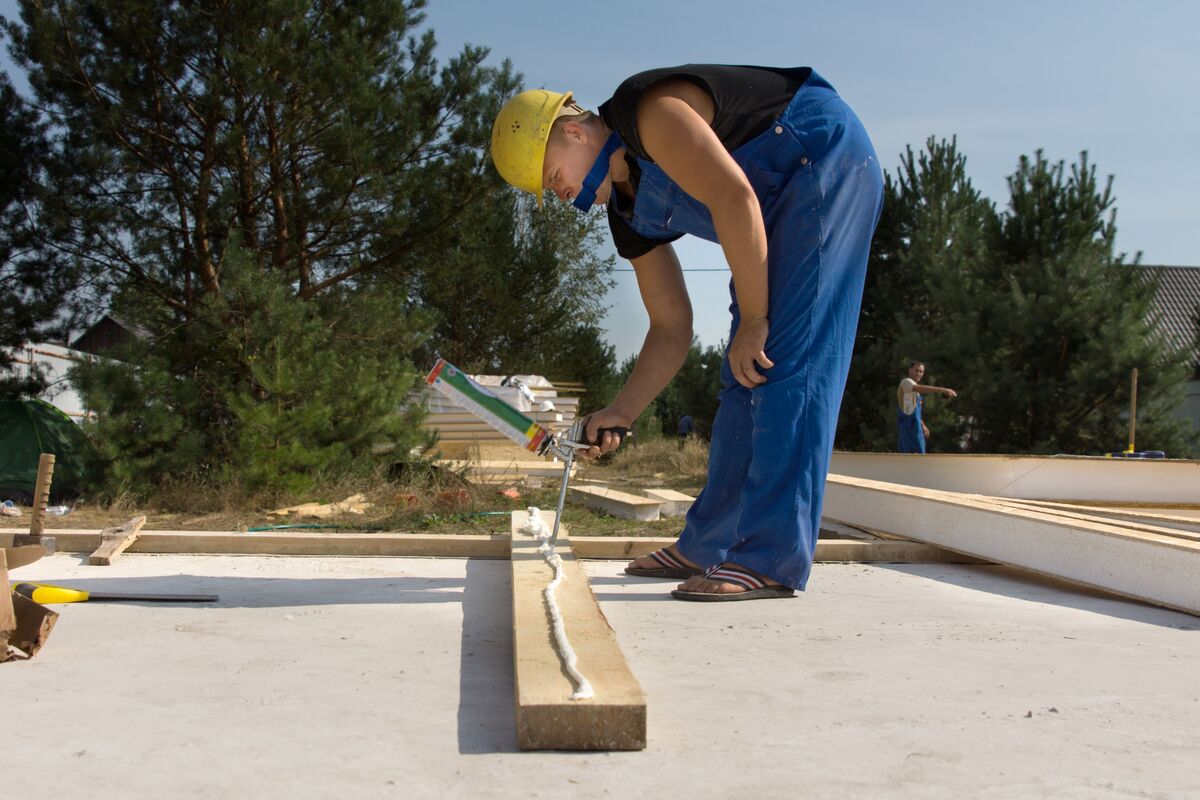
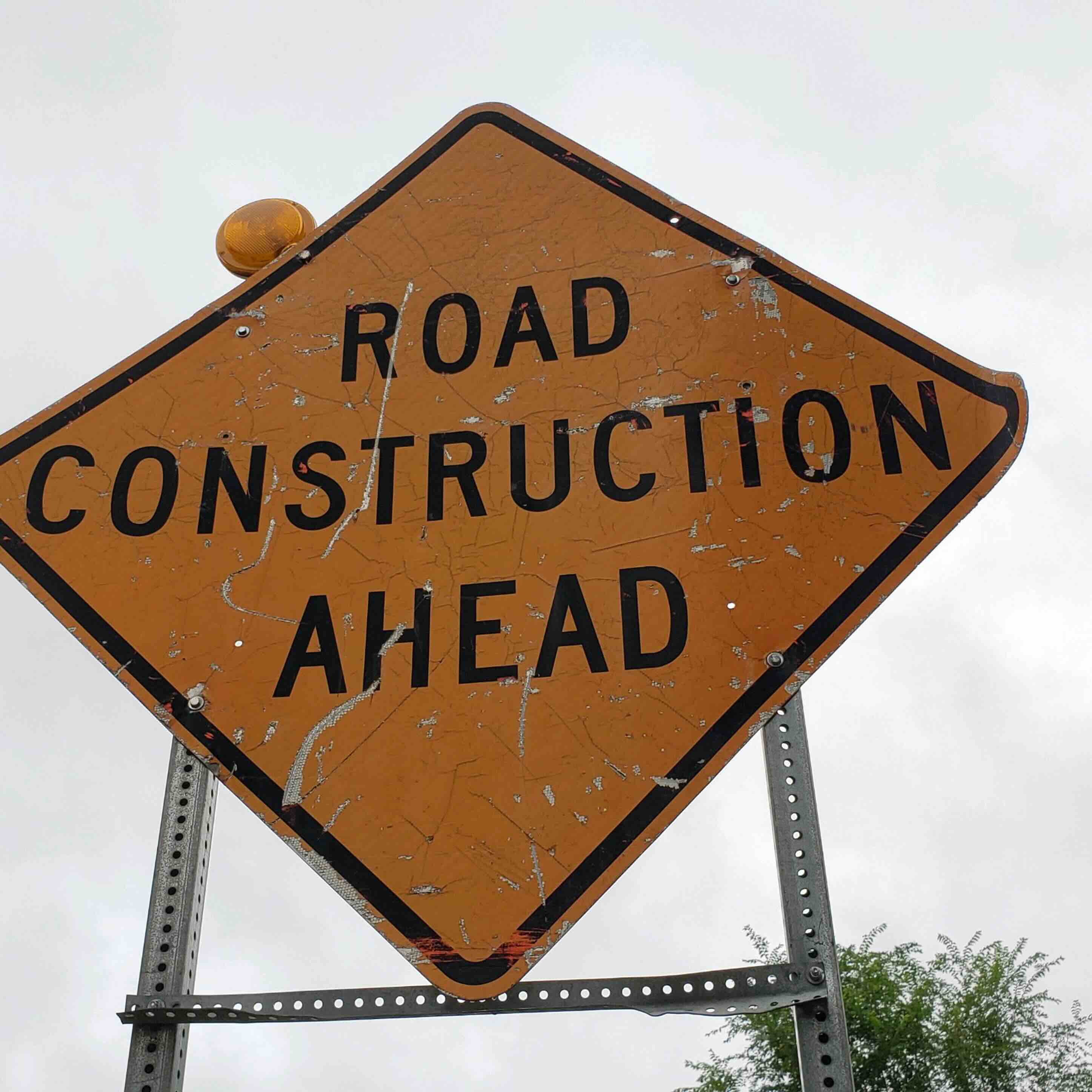

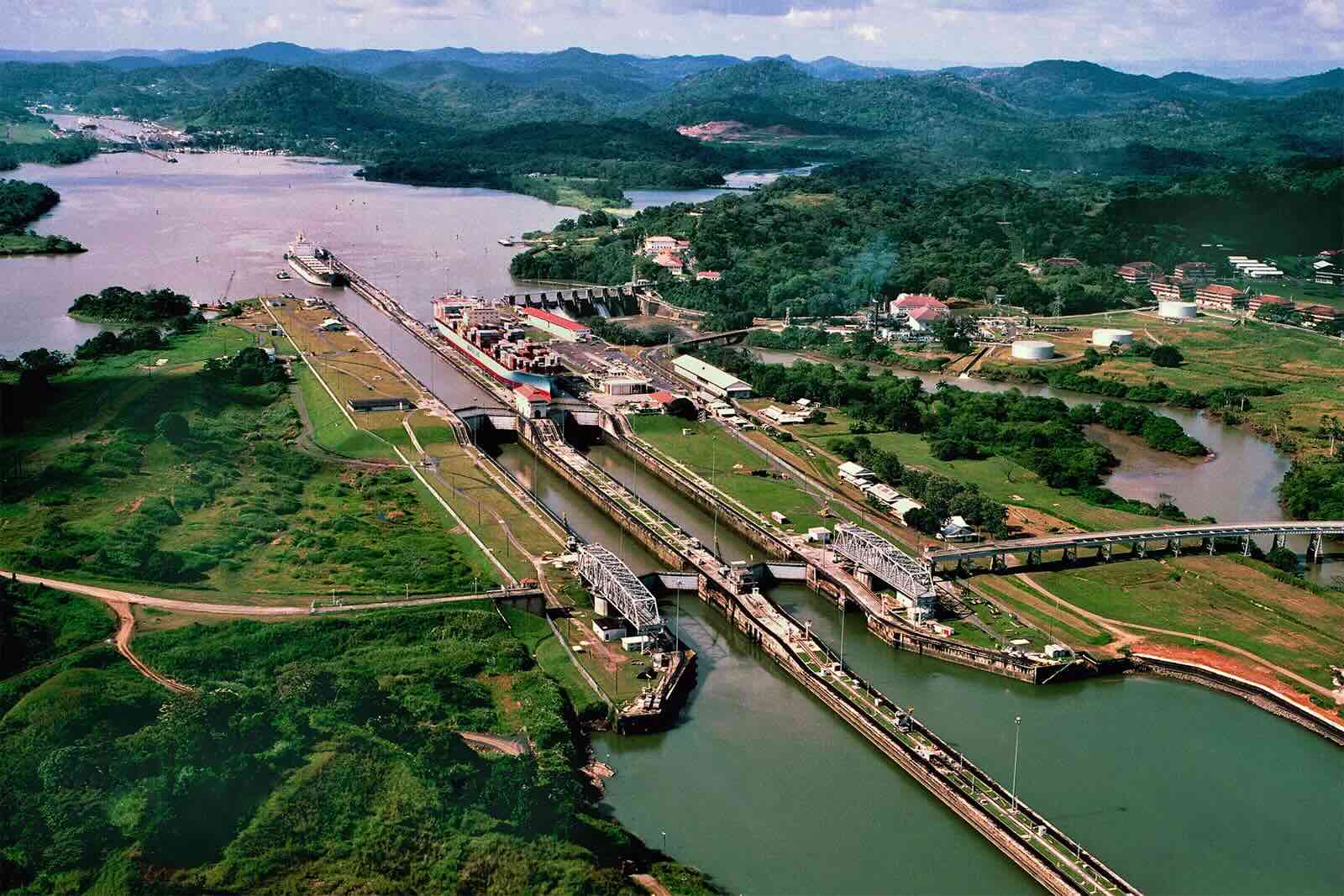
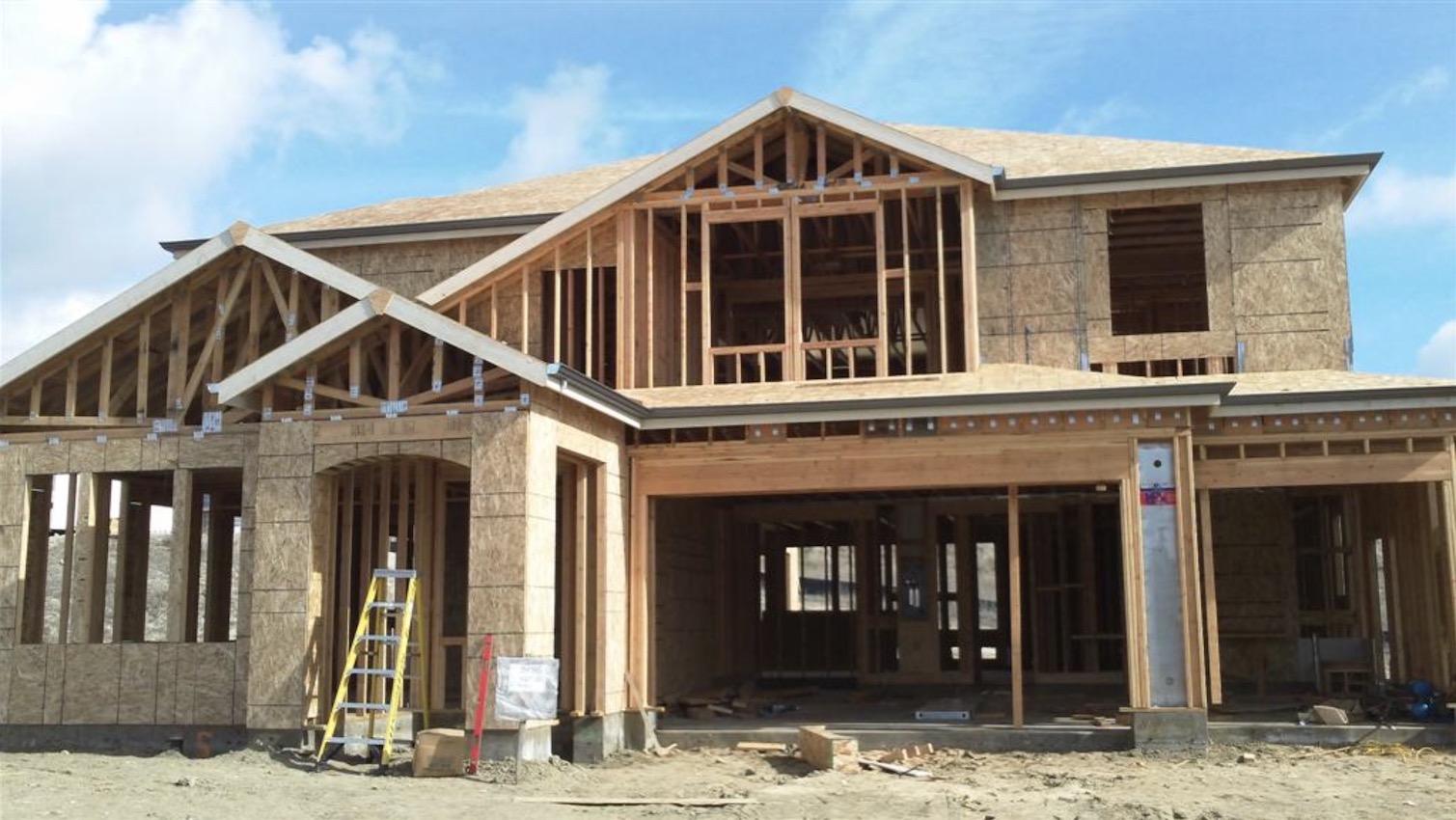
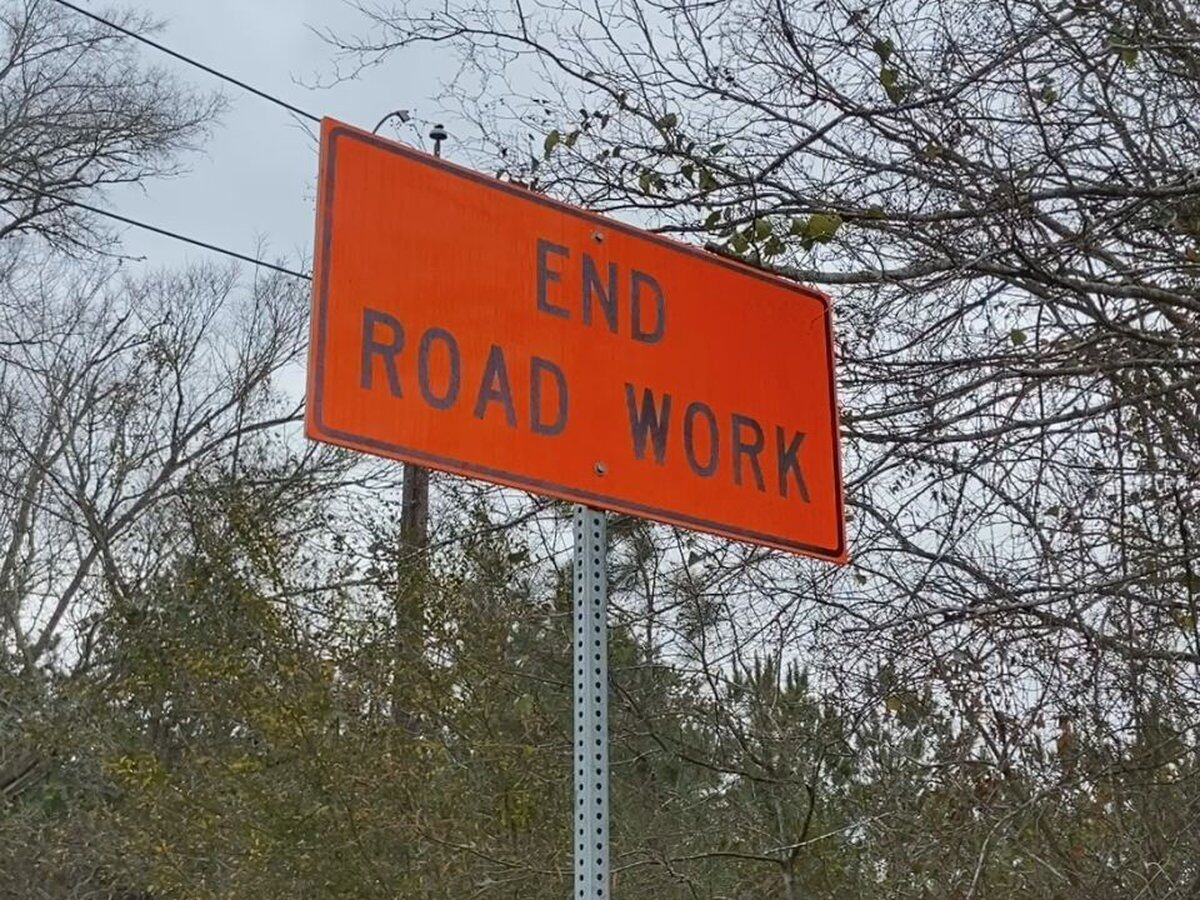





0 thoughts on “Why Does Road Construction Take So Long”